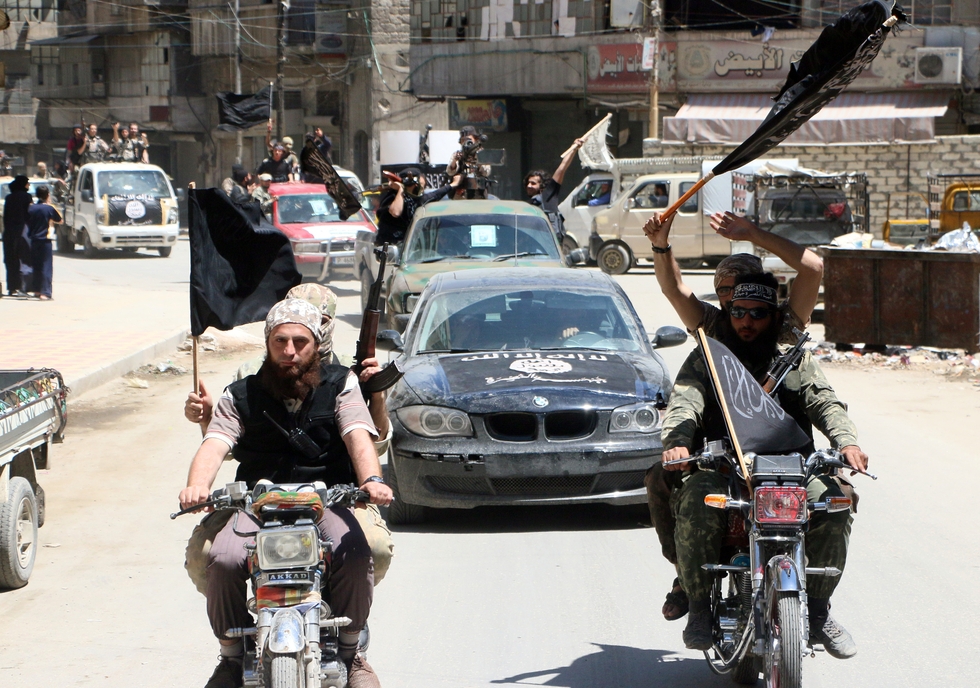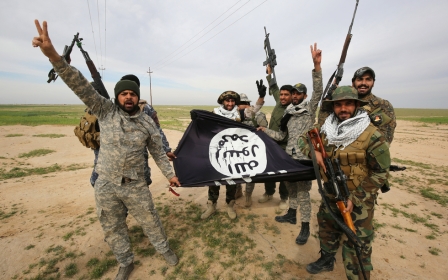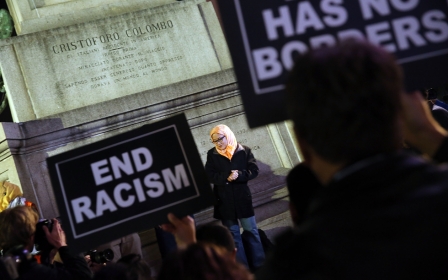Anti-IS campaigns risk inflaming Sunni anger and violence: Report

Military campaigns against the Islamic State group in Iraq and a new front in Libya risk entrenching the suffering of Sunnis and deepening chaos across the region, a new report on the rise of militant groups has warned.
In the report examining the influence of so-called jihadist groups, the International Crisis Group (ICG) said that the Islamic State (IS) group and al-Qaeda and its affiliates had “exploited wars, state collapse and geopolitical upheaval in the Middle East, gained new footholds in Africa and pose an evolving threat elsewhere”.
The report says that Islamist militant groups have been among the main beneficiaries of the 2011 Arab revolutions and have never posed a greater danger to the world.
"Today, the Middle East is at war, and the main winners so far are extremists,” the report said. “Extremism in the Muslim world has ebbed and flowed over the past quarter century but has never looked as dangerous as today.”
But the report also criticised governments who it said had been “too quick to go to war”, calling for force to be used more judiciously and for mistakes made in the aftermath of the 11 September 2001 al-Qaeda attacks in the US to be heeded.
Making enemies of non-violent political Islamists such as the Muslim Brotherhood was self-defeating it said.
It said that military action helped militant groups to recruit by exploiting genuine grievances as well as leaving communities “caught between their harsh rule and indiscriminate operations against them”.
Robert Blecher, the IGC's Middle East and North Africa deputy programme director and a co-author of the report, highlighted the current military campaign to push IS back from towns and cities under its control in Iraq's Anbar province.
“The current strategy against IS, particularly in Iraq, involves destroying the cities and towns in which they are rooted, which risks increasing the suffering of Sunnis and deepening their dangerous sense of victimisation,” he said.
Similarly, “military escalation against IS in Libya without a wider political settlement risks deepening the chaos”, said Claudia Gazzini, the ICG's senior analyst for Libya.
Arab Spring 'opportunity for militants'
The report said that the descent of many of the 2011 Arab revolutions into chaos had been the catalyst for a resurgency of Islamist militancy in the Middle East by opening up “enormous opportunities” for groups such as IS, which broke away from al-Qaeda in 2013.
It said IS, which has carved out a self-declared caliphate in Syria and Iraq and also controls territory on the Libyan coast, had “re-shaped the jihadist landscape” with a “strategy bloodier than that of al-Qaeda”.
“Movements have gathered force as crises have festered and evolved, as money, weapons and fighters flow in, as violence escalates. Mounting enmity between states means regional powers worry less about extremists than about traditional rivals, leverage the fight against IS against other enemies or quietly indulge jihadists as proxies,” the report said.
Geopolitics had also “hindered a coherent response”. The ICG said that improving relations between Saudi Arabia and Iran was key to addressing deepening divisions between Sunnis and Shias in the Muslim world.
It also highlighted tensions between Turkey and Kurdish militants, Turkey and Russia, Russia and Western powers, and between conservative Arab states and the Muslim Brotherhood as key faultlines that were contributing to global insecurity.
The ICG, which advises international organisations and national governments on security issues, said that it had decided to use the term “jihadist" to describe the groups analysed in the report because that was how they identified themselves.
“Many Muslims find its use in the context of political violence imprecise and offensive. In the view of the vast majority of Muslims, today’s “jihadists” pervert Islam’s tenets. It is hard, however, to escape the term,” it said.
Four waves of militant violence
The report identified four waves of "jihadist violence" over the past quarter of a century, beginning with a first wave following the collapse of the Soviet-backed government in Afghanistan in 1989.
In the following years, many fighters who were in Afghanistan returned to their countries of origin such as Algeria, Libya and Egypt to form cells in order to launch attacks against governments they deemed un-Islamic.
The second wave involved the al-Qaeda group, which concentrated its efforts on targeting the “far enemy” – that is, Western powers.
A third wave resulted from the 2003 US-led invasion of Iraq, which galvanised thousands of Muslims from the Arab world to join resistance groups in the country fighting the US.
Finally, the fourth wave, which the ICG said was more powerful than its predecessors due to the control of territory established by IS, gained momentum amid the political chaos and civil wars which following the “Arab Spring” uprisings across North Africa and the Middle East in 2011.
The collapse of the revolutions had damaged liberal democracy and peaceful political Islam, it said.
Reduce power rivalries, dialogue with militants
The report lists a number of different ways to counter the growing influence of militant organisations.
“Reversing their gains requires avoiding the mistakes that enabled their rise,” the report said. “This means distinguishing between groups with different goals, and using force more judiciously.”
Movements and groups that have roots in the communities they are present in cannot be expected to disappear through the use of force alone, the report warned.
These movements addressed “genuine grievances” and were usually backed by foreign donors, making them “hard to extirpate, however unappealing their ideology”.
“Most important is that actions against violent extremism not distract from or deepen graver threats, notably escalating major-and regional-power rivalries,” the report continued, urging leaders to engage in dialogue with militants, and to adopt a series of measures such as inclusion and reform, in addition to sensible reaction to terrorist attacks.
Stay informed with MEE's newsletters
Sign up to get the latest alerts, insights and analysis, starting with Turkey Unpacked
Middle East Eye delivers independent and unrivalled coverage and analysis of the Middle East, North Africa and beyond. To learn more about republishing this content and the associated fees, please fill out this form. More about MEE can be found here.




